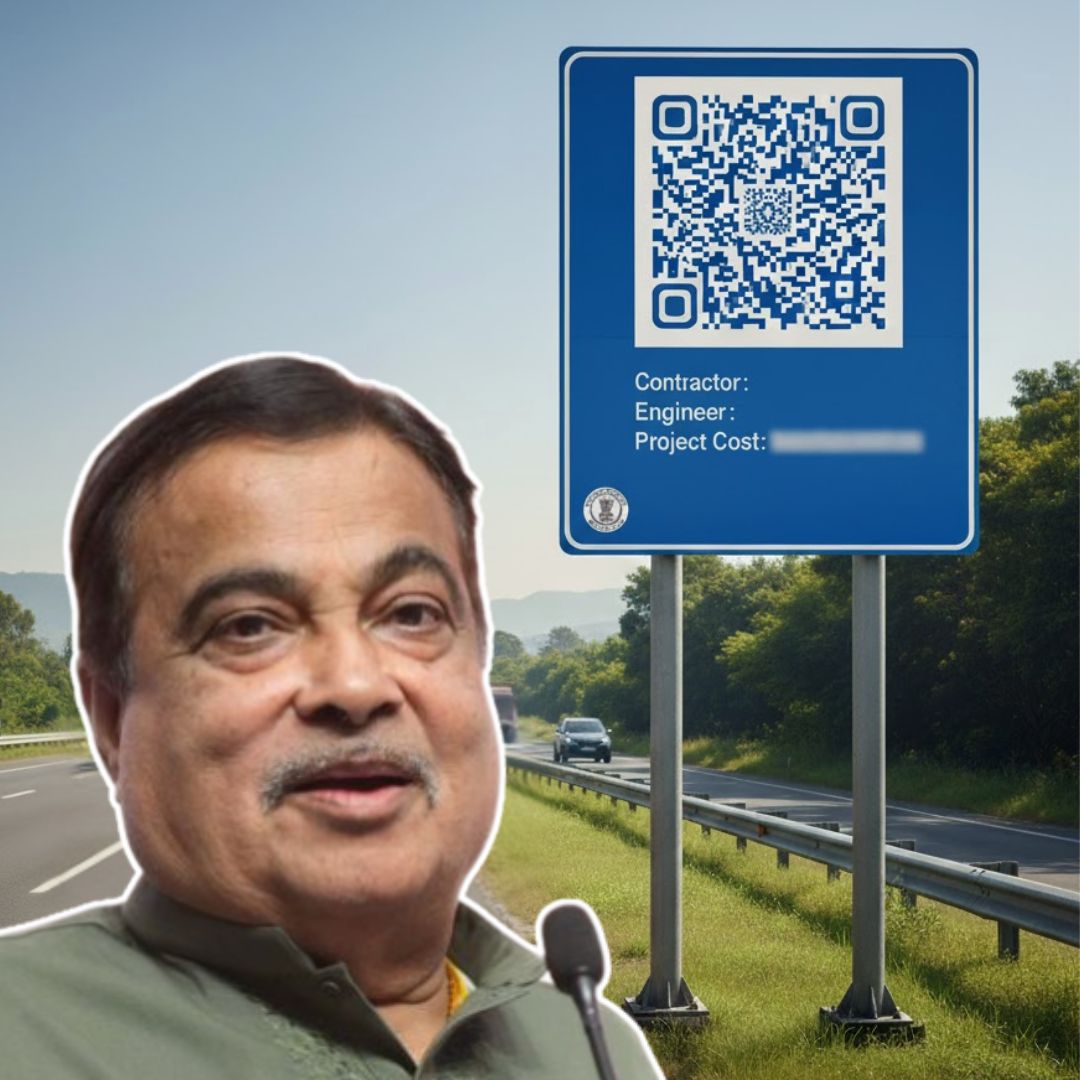Union Minister Nitin Gadkari has spearheaded a pioneering transparency initiative by mandating QR codes on all national highways across India to digitally display project details.
This comprehensive move addresses longstanding public concerns on accountability and road quality by providing instant access to relevant data via smartphone scans.
QR Codes to Revolutionise Transparency on Highways
Gadkari’s announcement entails placing information boards on national highways equipped with QR codes that commuters can scan to view vital project information. This includes the names, contact details, and photographs of contractors, supervising engineers, and government officials responsible for the road stretch.
Details on project costs, deadlines, funding sources, and ongoing progress will also be available in real time. Emergency helpline numbers will be displayed alongside for public safety and quick response.
This initiative integrates modern technology with governance to empower citizens and enhance infrastructure accountability.
Catalyst for Change: Public Demand for Accountability
The initiative was propelled by sustained public pressure, notably sparked by Bengaluru entrepreneur Anuradha Tiwari’s viral social media post criticizing the opacity around huge infrastructure spends compared to everyday consumer products.
The demand for road project transparency reflected a growing citizen impatience toward poor-quality roads and lack of clarity on responsible parties. Gadkari candidly voiced his frustration over being the sole target of blame for road failures, saying, “Sirf main hi kyun gaali khaoon? Pura mere gale par kyu latak jata hai?” (“Why should I alone get blamed?”).
By making all stakeholders visible, contractors, officials, consultants, he hopes to decentralise accountability and encourage everyone involved in the road ecosystem to perform diligently.
Big Win!@nitin_gadkari ji is implementing my QR scan idea!
— Anuradha Tiwari (@talk2anuradha) October 28, 2025
On July 12, I posted: If ₹5 biscuit has all details, why not 100 Cr road?
I demanded QR codes for roads. After months of efforts, it’s finally happening!
This is just the start of Accountability & Transparency! pic.twitter.com/aIBUV5GFx1
Enhanced Oversight and Maintenance Commitment
The QR code system ties into broader government efforts to strengthen oversight in India’s highway expansion programme. Officials and contractors will be obligated to upload regular construction updates, including video progress reports on dedicated YouTube channels accessible to the public.
The ministry enforces a 10-year defect liability clause on contractors, ensuring long-term maintenance responsibility. This policy aims to encourage better workmanship and timely redressal of road defects at the contractor’s expense.
Gadkari also emphasised that India’s annually collected toll revenue, currently about ₹55,000 crore, is expected to rise significantly, increasing the demand for international-quality roads. He stressed that poor weather and low-quality bitumen would no longer be accepted excuses for subpar roads, insisting that “comfort is non-negotiable,” even if costs increase.
The Logical Indian’s Perspective
This initiative represents a crucial step towards participatory governance and greater public empowerment in infrastructure oversight. By unveiling the chain of responsibility, the QR code drive fosters transparency and demystifies the process behind road building.
However, technology alone cannot guarantee success: ongoing citizen engagement, timely government responsiveness, and strict enforcement are essential to translate transparency into tangible improvements. The Logical Indian encourages readers to reflect on how digital tools can reform public accountability beyond highways, nurturing trust and collaboration between citizens and authorities.
📍𝑵𝒆𝒘 𝑫𝒆𝒍𝒉𝒊 | Addressing CII National Conference on ‘Future of Smart Roads – Safety, Sustainability, Resilience’. https://t.co/G60sQJOpXI
— Nitin Gadkari (@nitin_gadkari) October 28, 2025












